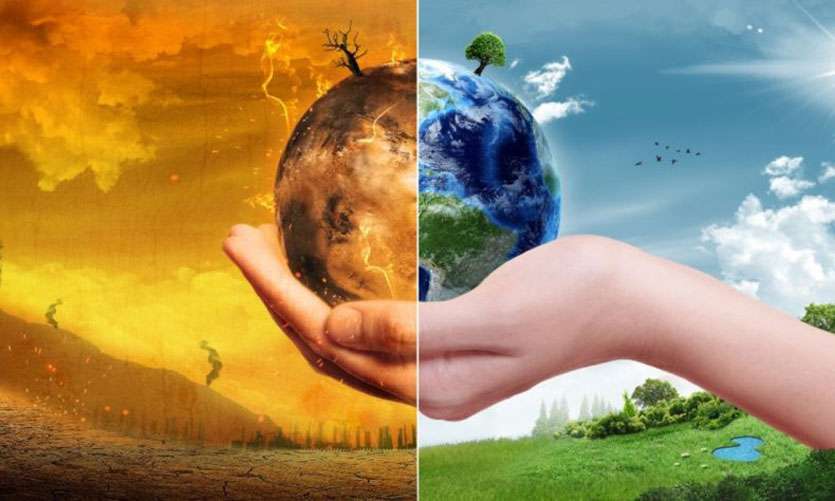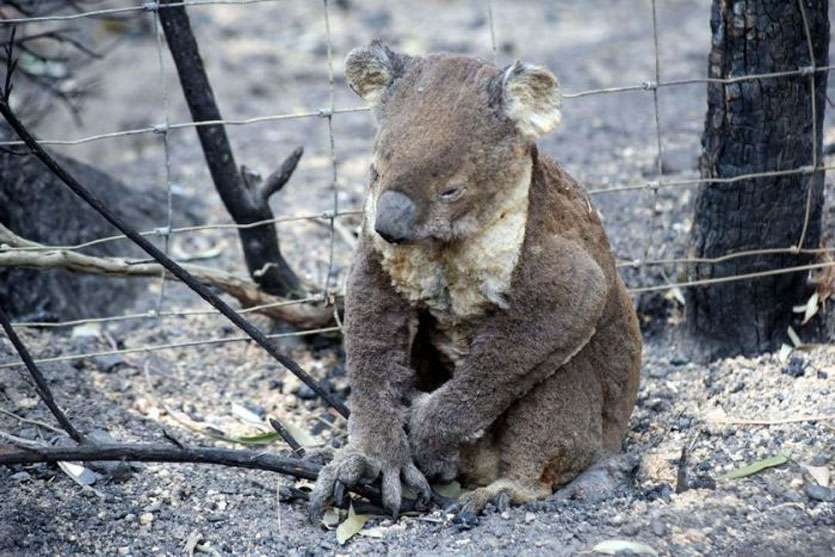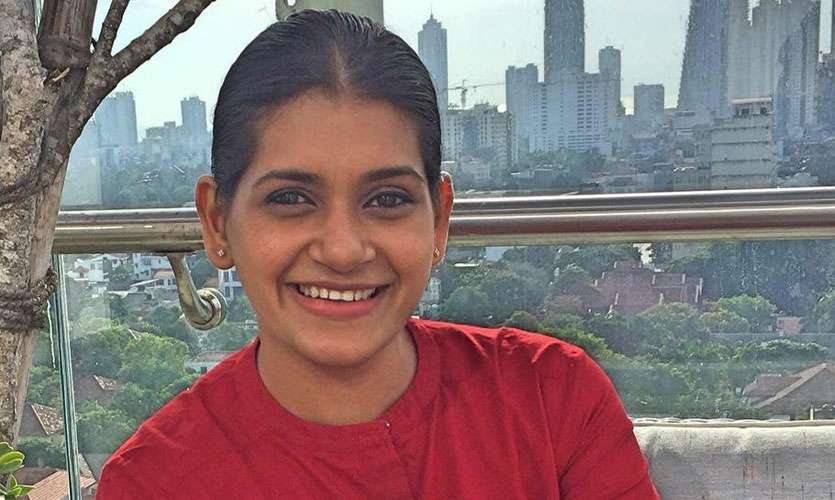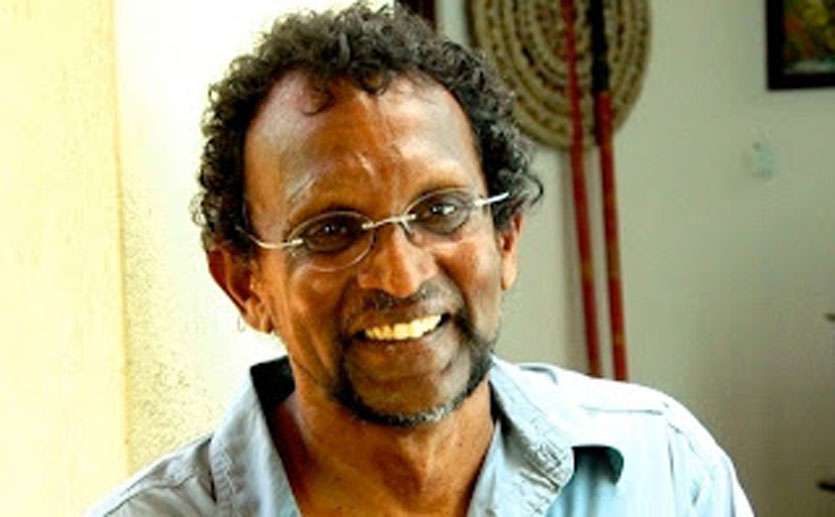
Jan 10 2020.
views 585
The raging bushfires in Australia have taken a massive toll on animals, killing as many as 480 million of them or more. If humans continue to ignore the environment and use and abuse it at their own will, there would be more natural disasters in time to come. The bushfires and climatic conditions such as El Niño have proved that development and conserving the environment should go hand in hand.Little change is happening in Sri Lanka but approaches such as reducing plastics and disposing garbage in a proper way needs to be continued in order to witness the positive impacts on nature.

With that in mind the Daily Mirror Life spoke to a few individuals who have taken sustainability rather seriously to find out how the islanders could contribute to help Save Earth.
Return to agro-forestry : Sunela

In her comments, renowned environmental architect Sunela Jayawardena said that ancient Sri Lankan’s land use systems of agro-forestry, displayed a sophisticated understanding of ecosystems. Returning to agro-forestry, instead of unsustainable mono-cropping, which was introduced by the British with the singular objective of higher economic yields, will help restore our soil and revive essential ecosystem services.”
Focus on minimising waste before it reaches home : Vraie

“Living sustainably means having to make conscious decisions about our choices,” saysVraie Cally Balthazaar, Founder, Cally Reusable Bags. “Be it how we eat, drink, travel, shop etc. Some choices are much easier than others. For example, like in how we shop. Very simple things like using reusable bags for vegetables, fruit, grains, sugar and flour, buying produce in bulk when possible, carrying your own containers for meat and fish, getting coconut oil from a dispenser and carrying an old egg carton to carry loose eggs help minimize purchasing polythene and plastic. The idea is to focus on how to minimize waste even before it reaches home, and not only work on how to segregate it. While it might seem like a little effort at first, it is a necessary step. Our landfills are overflowing, and garbage mountains are growing taller. Our individual impact on the environment is no longer something we can disregard during this climate crisis.”
Need to change definition of development and our lifestyles to be sustainable : Dr. Senanayake

“It is important to adopt to a sustainable lifestyle in today’s context because we are finding out that the ‘consumptive lifestyles’ touted as ‘development’ are threatening the very sustainability of humanity,” said Dr. Ranil Senanayake, systems ecologist and founder of EarthRestoration. “There is a crisis in the quality of air, the quality of water and the quality of food. The increases in non-communicable diseases are a stark indicator of the abuse of the Global Commons. While all of these trends indicate a loss of human well-being, they often reflect a growth in economic activity and therefore seen as ‘good’. It has been over forty years of attempting to inform successive governments that reliance on fossil fuels for energy will create external dependence and unplanned growth will being a reduction in the quality of life in the urban environment.”
“The public health statistics confirm the downward trends,” he continued. “But we keep on increasing the toxic load on the population. To be sustainable, we need to change our definition of ‘development’ and change our lifestyles, because, as Albert Einstein is quoted as saying ‘doing the same thing over and over again, and expecting different results is the definition of insanity’. Unless, we break from our current repetitive pattern of the last forty years, we will continue to demonstrate our insanity.”
Dr. Senanayake agreed that it is a challenging task, but conversely it can also be done easily. “It is challenging because, one has to go against the massive power of the fossil fuel and consumerist development lobbies. Often these lobbies have many politicians and bureaucrats in their pockets. But at the same time easy, because all it takes to make the change is for each one of us to change our individual lifestyles. Be informed, be responsible consumers. Understand that there are limits.”
He proposed a few sustainable approaches as follows :
Dr. Senanayake’s Earth Restoration model (www.restore.earth) is a process that recognizes the real value in Primary Ecosystem Productivity. “As it is only photosynthetic biomass (PB) that can generate PES and as it is only the farming community that have the capacity to sustain PB, recording and reporting on the volume and value of its products (Oxygen and clean water) creates the new economic process termed Biocurrency. Up to date farmers have always been discounted in tree planting programs as donors seek the cheapest option. Establishing trees under the Earthrestoration (ER) process benefits the farmer by paying him/her to look after the tree for four years until it is established. It also pays the highest global rate to a farmer establishing a tree for four years.”
Here are a few simple ways on how you could easily help save Earth :
Reduce, reuse, and recycle : Cut down on what you throw away. Follow the three "R's" to conserve natural resources and landfill space.
Volunteer : Volunteer for cleanups in your community. You can get involved in protecting your watershed, too.
Educate : When you further your own education, you can help others understand the importance and value of our natural resources.
Conserve water : The less water you use, the less runoff and wastewater that eventually end up in the ocean.
Eat sustainably : Food production is a major driver of wildlife extinction. What we eat contributes around a quarter of global greenhouse gas emissions and is responsible for almost 60% of global biodiversity loss.
Shop wisely : Buy less plastic and bring a reusable shopping bag.
Use long-lasting light bulbs : Energy efficient light bulbs reduce greenhouse gas emissions. Also flip the light switch off when you leave the room!
Plant a tree :Trees provide food and oxygen. They help save energy, clean the air, and help combat climate change.
Don't send chemicals into our waterways :Choose non-toxic chemicals in the home and office.
Bike more: Drive less.
Reduce your waste : We need to make wasting our resources unacceptable in all aspects of life. Every product we buy has an environmental footprint and could end up in a landfill.
0 Comments